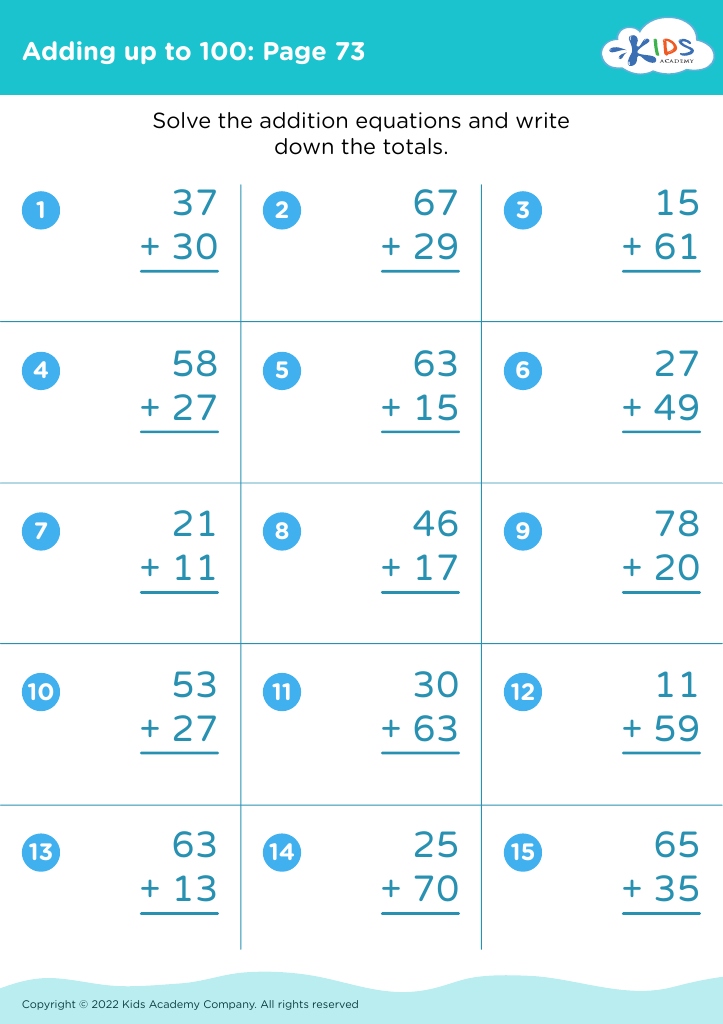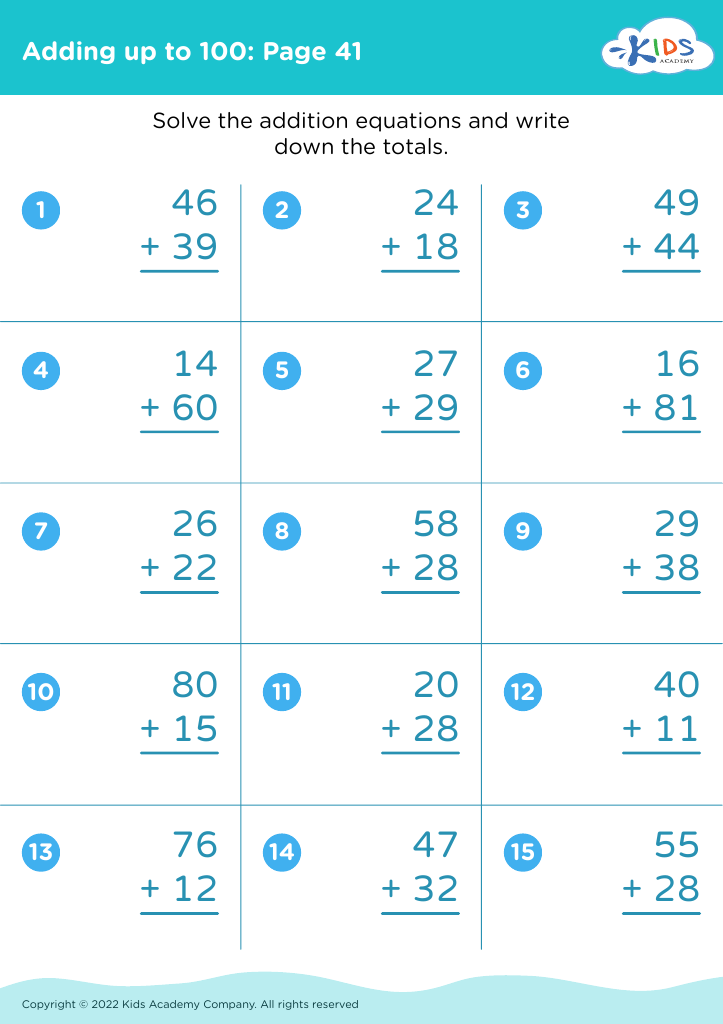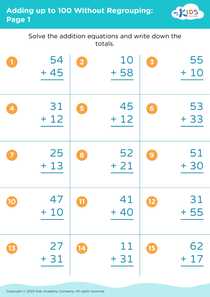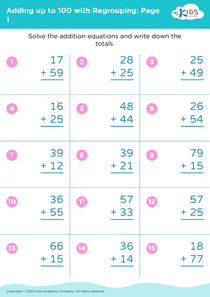Basic Math Skills Adding up to 100 Misc Worksheets for Ages 6-8
5 filtered results
-
From - To
Explore our engaging "Basic Math Skills: Adding Up to 100" miscellaneous worksheets designed for children aged 6-8. These creatively crafted resources support young learners in mastering essential addition concepts through fun activities that make math enjoyable. Tailored to foster confidence and skill development, our worksheets include diverse exercises that encourage problem-solving and critical thinking. Perfect for home practice or classroom learning, each worksheet engages kids with colorful visuals and relatable contexts. Watch as your child develops a strong mathematical foundation while adding up to 100 effortlessly. Start enhancing their arithmetic skills today with our interactive and diverse math worksheets!
Parents and teachers should prioritize basic math skills, particularly the ability to add up to 100, for children aged 6-8 because this foundational knowledge supports a child’s overall academic development and everyday problem-solving abilities. Mastering addition fosters confidence in young learners, setting the stage for more complex mathematical concepts such as subtraction, multiplication, and division.
By focusing on solidifying addition to 100, educators cultivate critical thinking and analytical skills in children, essential for reasoning and decision-making in various contexts. This skill enhances children's ability to understand numbers in real-world applications, like budgeting, time management, and measuring ingredients while cooking, thereby making math relevant to their daily lives.
Moreover, practicing addition contributes to a child's cognitive growth. As they engage in activities that promote these skills, they also enhance memory, attention, and language development. Encouraging a positive attitude toward math at an early stage combats math anxiety and helps foster perseverance in facing challenges, thus laying the groundwork for future academic success in mathematics and beyond. Ultimately, nurturing these skills enriches the child’s learning experience, builds their confidence, and equips them for higher-level math as they progress through their education.















